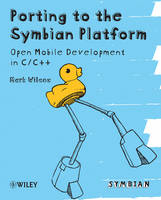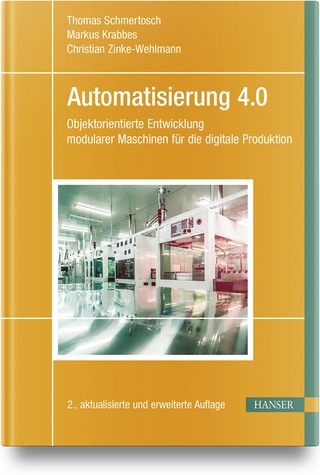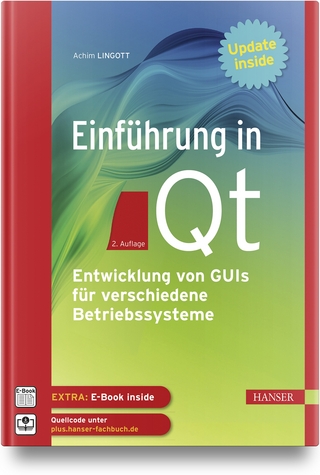
Porting to the Symbian Platform
John Wiley & Sons Ltd (Verlag)
978-0-470-74419-2 (ISBN)
- Titel ist leider vergriffen;
keine Neuauflage - Artikel merken
If you want to write mobile applications without the idioms of Symbian C++, have existing software assets that you'd like to re-use on Symbian devices, or are an open source developer still waiting for an open Linux-based device to gain significant market penetration, this is the book for you! Beginning with an introduction to the native programming environments available and descriptions of the various technologies and APIs available, you will first learn how to go about porting your code to the Symbian platform. Next, you will discover how to port to Symbian from other common platforms including Linux and Windows. Finally, you can examine sample porting projects as well as advanced information on topics such as platform security. The author team consists of no less than six Forum Nokia Champions, together with technical experts from the Symbian community, either working on Symbian platform packages or third party application development. With this book, you will benefit from their combined knowledge and experience.
In this book, you will learn: * How to port and make use of existing open source code to speed up your development projects * How to port applications from other popular mobile platforms to the Symbian platform * How to write code that is portable across multiple platforms * The APIs in the Symbian platform for cross-platform development, such as support for standard C/C++ and Qt.
About this Book. Author Biographies. Author's Acknowledgements. Symbian Acknowledgements. 1 Introduction. 1.1 What Is Porting? 1.2 What Is Portability? 1.3 Why Port to Mobile Platforms? 1.4 Why Get Interested Now? 1.5 Why Port to the Symbian Platform? 2 The Porting Process. 2.1 Choosing a Project. 2.2 Analyzing the Code. 2.3 Re-architecting. 2.4 Setting Up the Development Environment. 2.5 Integrating with the Symbian Build System. 2.6 Compiling. 2.7 Fixing Problems. 2.8 Running and Testing. 2.9 Debugging. 2.10 Re-integrating. 2.11 Summary. 3 Symbian Platform Fundamentals. 3.1 In the Beginning. 3.2 Naming Guidelines and Code Conventions. 3.3 Data Handling. 3.4 String Handling: Descriptors. 3.5 Error Handling and Memory Management. 3.6 Event-Driven Programming. 3.7 Writeable Static Data. 3.8 Multiple Inheritance. 3.9 Summary. 4 Standard APIs on the Symbian Platform. 4.1 P.I.P.S. Is POSIX on Symbian OS. 4.2 Open C. 4.3 The STLport, uSTL and Open C++. 4.4 Which Version of Symbian OS? 4.5 How to Use the APIs. 4.6 Examples: SoundTouch and SoundStretch. 4.7 Known Limitations, Issues and Workarounds. 4.8 Summary. 5 Writing Hybrid Code. 5.1 Popular APIs You Can't Use Directly. 5.2 How to Create a Hybrid Port. 5.3 Example: Guitune. 5.4 Summary. 6 Other Port Enablers. 6.1 Real-time Graphics and Audio Libraries 6.2 Simple DirectMedia Layer. 6.3 OpenKODE. 6.4 Qt. 6.5 Summary. 7 Porting from Mobile Linux. 7.1 Major Players in the Mobile Linux Space. 7.2 Porting from Linux to Symbian. 7.3 Summary. 8 Porting from Microsoft Windows. 8.1 Architecture Comparison. 8.2 Application Compatibility. 8.3 Development Languages and SDKs. 8.4 SDKs and APIs. 8.5 Porting an Application. 8.6 Windows-specific Issues. 8.7 Signing and Security. 8.8 Porting from C# and .NET. 8.9 Summary. 9 Porting from Other Mobile Platforms. 9.1 Android. 9.2 BREW. 9.3 iPhone OS. 9.4 Summary. 10 Porting a Simple Application. 10.1 Selecting a Project. 10.2 Analyzing the Code. 10.3 Setting Up the Development Environment. 10.4 Integrating with the Symbian Build System. 10.5 Getting It to Compile. 10.6 Getting It to Work. 10.7 Extensions Specific to Mobile Devices. 10.8 Deploying and Testing on Target Hardware. 10.9 Re-integrating. 10.10 Summary. 11 Porting Middleware. 11.1 GDAL. 11.2 Qt. 11.3 Summary. 12 Porting a Complex Application. 12.1 Selecting a Project. 12.2 Analyzing the Code. 12.3 Re-architecting. 12.4 Setting Up the Development Environment. 12.5 Integrating with the Symbian Build System. 12.6 Getting It to Compile. 12.7 Re-writing the User Interface. 12.8 Testing and Debugging. 12.9 Re-integrating. 12.10 Summary. 13 The P.I.P.S. Architecture. 13.1 The Glue Code. 13.2 The Core Libraries. 13.3 The Backend. 13.4 Emulator Writeable Static Data Support. 13.5 Summary. 14 Security Models. 14.1 The Capability Model. 14.2 Process Identity. 14.3 Data Caging. 14.4 Code-Signing and Certification. 14.5 Certification and Platform Security. 14.6 Development Code. 14.7 Tool Support. 14.8 Symbian Platform Security Compared with Other Models. 15 Writing Portable Code and Maintaining Ports. 15.1 Recognizing Portable Code. 15.2 Design Strategies and Patterns. 15.3 Strategies for Maximizing the Number of Portable Modules. 15.4 Configuration Management. 15.5 Summary. Appendix A Techniques for Out-of-Memory Testing. References. Index.
| Erscheint lt. Verlag | 18.9.2009 |
|---|---|
| Reihe/Serie | Symbian Press |
| Verlagsort | Chichester |
| Sprache | englisch |
| Maße | 191 x 238 mm |
| Gewicht | 830 g |
| Themenwelt | Mathematik / Informatik ► Informatik ► Netzwerke |
| Mathematik / Informatik ► Informatik ► Programmiersprachen / -werkzeuge | |
| Informatik ► Software Entwicklung ► Objektorientierung | |
| ISBN-10 | 0-470-74419-7 / 0470744197 |
| ISBN-13 | 978-0-470-74419-2 / 9780470744192 |
| Zustand | Neuware |
| Haben Sie eine Frage zum Produkt? |
aus dem Bereich


